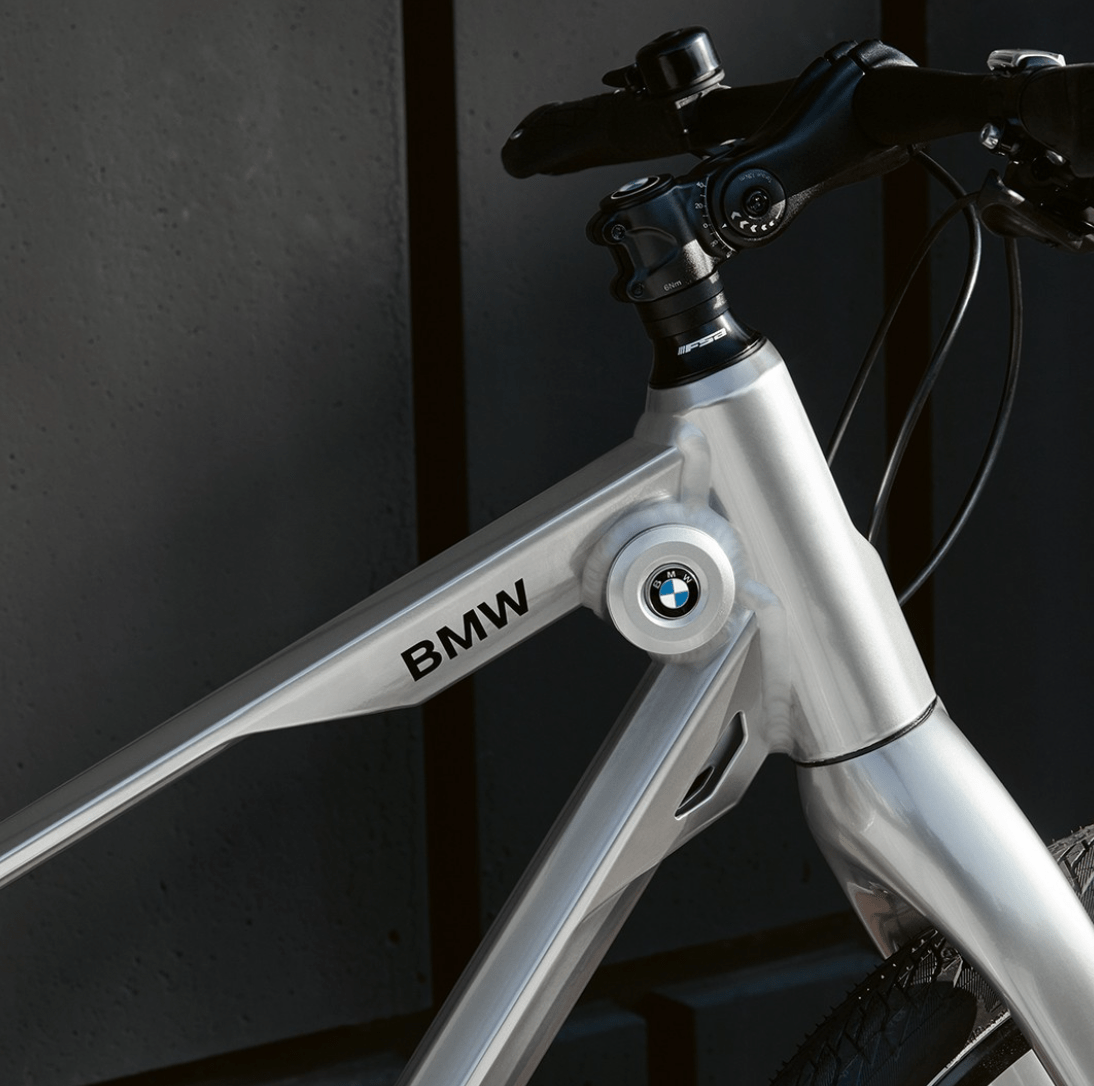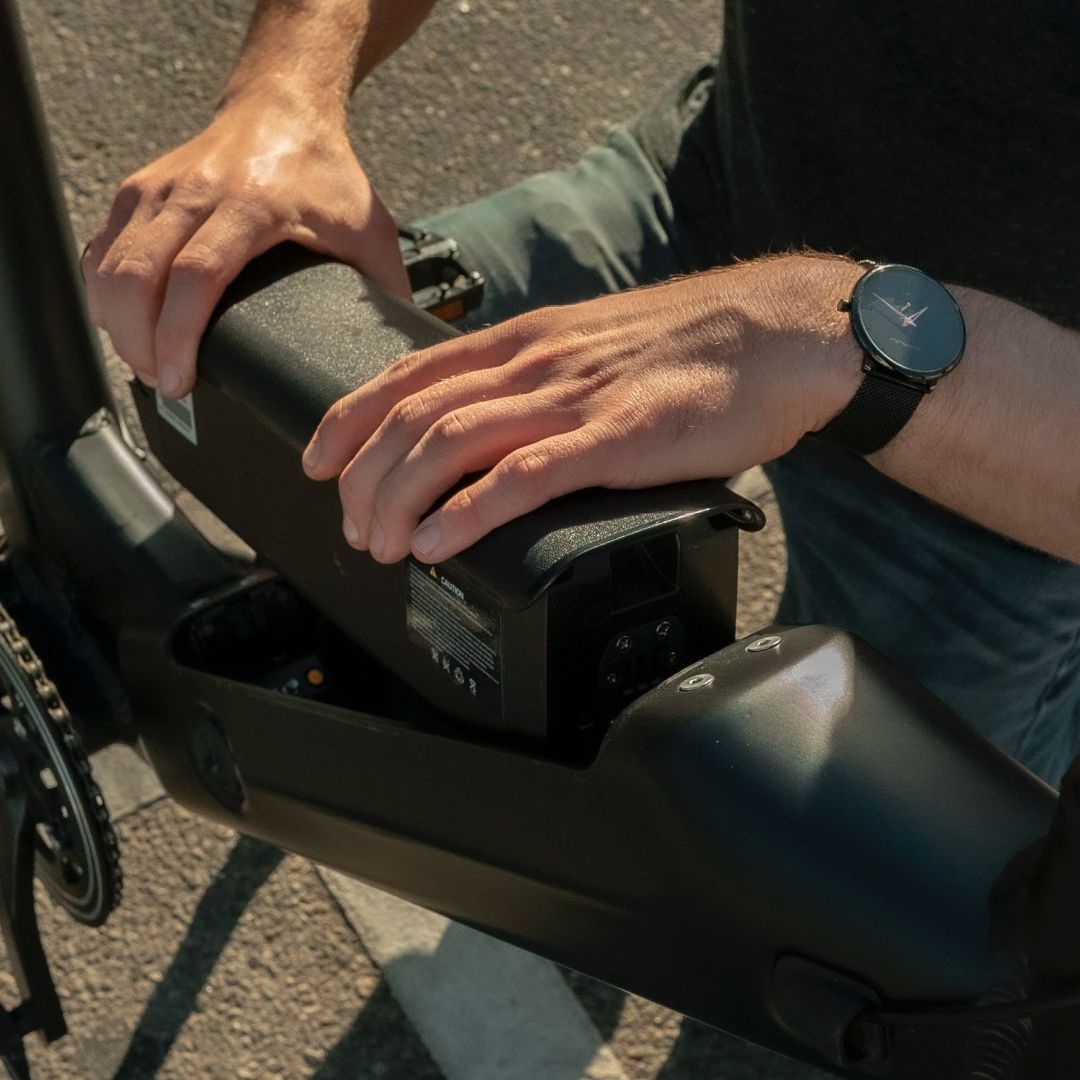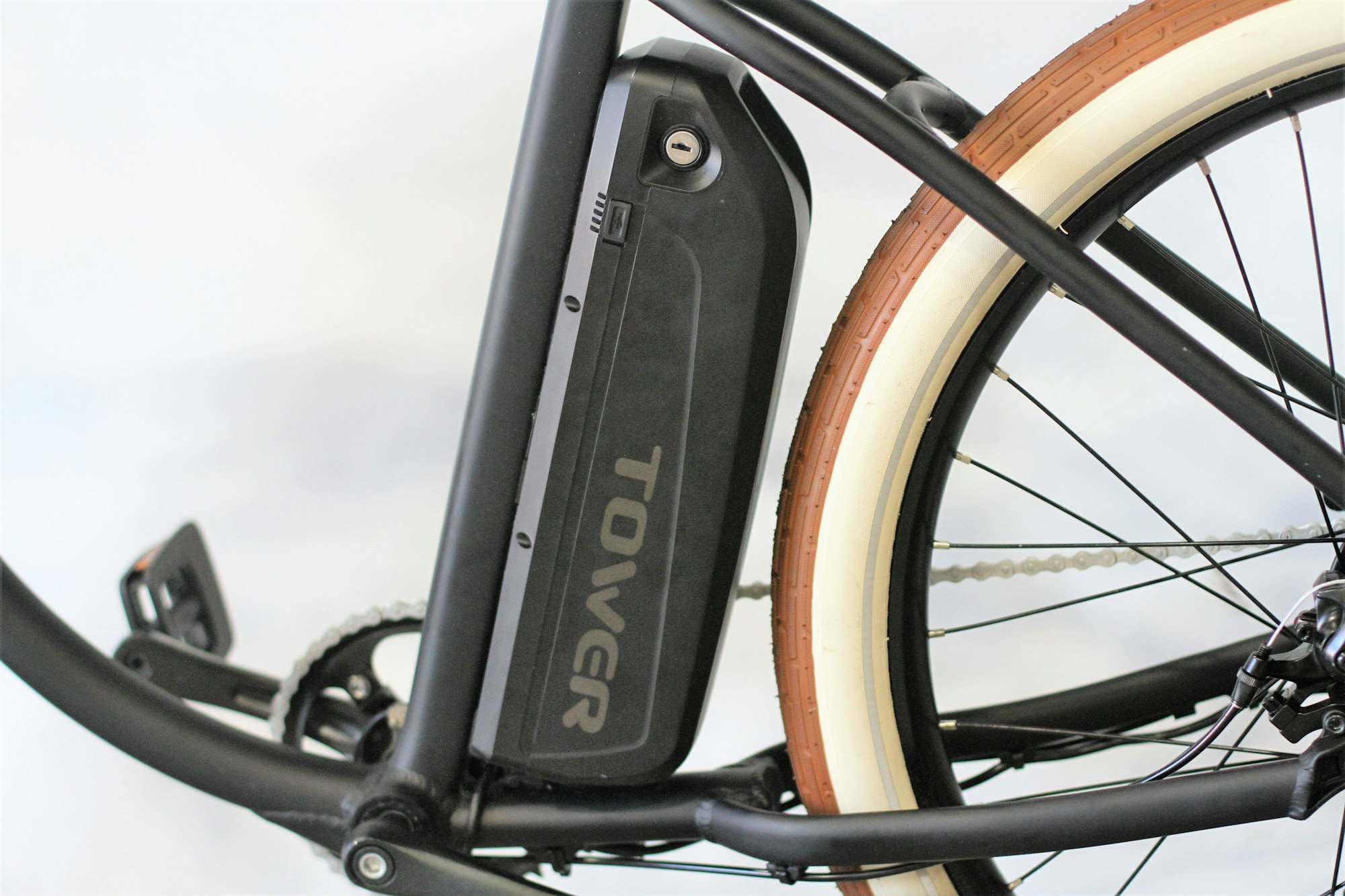But here are the million-pound questions: Are these car giants about to flip the script and lead the charge in the e-bike revolution? Will e-bikes replace cars?
As we dive into this guide, we're not just talking nuts and bolts. We're exploring how the expertise of car manufacturers in sustainable mobility could steer the future of transportation. They've already transformed our roads with electric cars, but can they do the same with e-bikes?
Strap in, and let's find out everything you need about car manufacturers, e-bikes and the market's future.
Are Car Manufacturers Making E-bikes Now?
It looks that way. E-bikes are no longer just the darlings of the cycling world - they've caught the eye of some big players in the car industry.
These car giants are now quietly cruising into the e-bike lane. Research shows that the UK E-bike market is expected to grow significantly, from USD 190.02 million in 2023 to USD 250 million by 2028.
If you're considering an e-bike, understanding your insurance options is crucial. Check out our e-bike insurance comparison guide for valuable insights.
Let's delve into the list of automotive heavyweights who are interested in the world of e-bikes:
- BMW: Known for sleek cars, BMW's now zipping into the e-bike scene, bringing their flair for innovation to two wheels.
- Volkswagen: Not just about cars anymore, Volkswagen's dabbling in e-bikes is part of their broader eco-friendly vision.
- General Motors (Including Ford and Chevrolet): The old-school car legends at GM are mixing it up, bringing their electric expertise to the e-bike market.
- Seat: A member of the Volkswagen family, Seat is making a bold leap from cars to electric scooters, eyeing up the e-bike market.
- Peugeot: These car and motorbike pros are now spinning into the e-bike revolution, expanding their horizons beyond four wheels.
- Skoda: Known for their sturdy cars, Skoda's now experimenting with a hybrid mix of scooters and e-bikes, stirring up the market.
Yet, it's only now that they're beginning to take action. The real question is, why? Why are car manufacturers keen to make vehicles that sell for figures far lower than cars?
Rethinking Urban Mobility for a Better Tomorrow
Navigating through the bustling streets of major cities is becoming increasingly complex, especially with a conventional car. The stark reality is that traditional vehicles significantly contribute to carbon footprints and greenhouse gas emissions.
Unlike these gas-guzzlers, electric bicycles present an environmentally friendly alternative. The University of Oxford found that switching from car driving to cycling or e-biking can significantly reduce an individual's carbon footprint. They're not just about getting you from A to B - they're about doing it without leaving a trail of harmful emissions behind.
Redefining City Infrastructure with E-Bikes
The future of urban infrastructure is rapidly evolving to accommodate this eco-conscious shift.
In the UK, cities like London and Birmingham are already pioneering change, introducing taxes on less eco-friendly vehicles and encouraging greener alternatives. This transformation isn't just about penalising the bad - it's about championing the good.
Integrating Bike Lanes and Public Transport
Integrating bike lanes and public transportation with electric bicycles is pivotal in this transition. It's not just about creating paths for e-bikes but weaving them into the fabric of city transport networks.
Car manufacturers, recognising this shift, are eager to contribute. By delving into the electric bicycle and scooter market, they're not just securing a seat at the table - they're actively participating in reshaping the future of urban transportation.
Here are five key initiatives driving this integration:
- City planners actively expand dedicated bike lanes, ensuring they cover critical routes and connect seamlessly with public transportation hubs.
- These bike lanes are designed with safety in mind, incorporating features such as clear signage, designated bike traffic signals, and barriers to separate cyclists from vehicular traffic.
- Many cities have implemented e-bike rental programs that allow residents and visitors to easily access electric bicycles for short journeys, making them a convenient complement to public transportation.
- Smartphone apps are being developed to help commuters plan their journeys by seamlessly combining e-bike rides with bus or train routes. These apps provide real-time information on bike and transit availability.
- Some forward-thinking cities offer incentives, such as tax credits or reduced public transportation fares, to encourage commuters to switch to e-bikes for their first and last-mile journeys.
If you're curious about the legalities and insurance aspects of e-bikes and have asked yourself: "Do electric bikes need insurance?" Check out our comprehensive guide on UK e-bike laws.
The Role of Car Manufacturers in Sustainable Mobility
As urban areas continue to combat air pollution, the demand for sustainable mobility solutions like electric bikes and e-scooters is rising. For car manufacturers, this is both a challenge and an opportunity.
While the traditional car market may not vanish entirely, diversifying into the realm of electric bicycles allows these industry giants to stay relevant and profitable in a world increasingly opting for greener modes of transportation.
As you consider joining this eco-friendly trend, learn about protecting your investment with our comprehensive electric bike insurance.
Are Electric Cars Losing Ground to E-Bikes?
Electric cars (EVs) inevitably come to mind when pondering the future of transportation. Today, nearly every car manufacturer is diving deep into EVs, with some brands like Tesla exclusively producing electric vehicles.
These cars are equipped with advanced electric motors and robust engines, showcasing significant strides in eco-friendly technology. However, it's not just cars that are benefiting from these advancements.
Electric bikes, too, are harnessing this technology, albeit on a smaller scale, integrating compact yet powerful motors that make them efficient, cost-effective, and accessible.
Market Trends: E-Bikes are Gaining Ground
Despite the technological marvels of EVs, the bike industry is carving out a substantial market share. This growth is driven by the relative affordability and ease of production of electric bicycles compared to their four-wheeled counterparts.
This burgeoning market presents a dual opportunity for car manufacturers: they can continue to innovate in the electric car space while capitalising on the rising demand for electric bikes.
Shifting Consumer Preferences and the Automotive Industry
This study [PDF] shows that a shift in consumer preferences is evident. Young demographics living in big cities like London have a preference for alternative modes of transport, with a majority of people preferring not to own or even think of owning a car.
This trend signals a broader change in transportation choices, where more people are looking for environmentally friendly, cost-effective, and convenient alternatives.
Car manufacturers, acknowledging this shift, are strategically positioning themselves in the e-bike segment to cater to these changing consumer needs and maintain their relevance in the future of transportation.
How are E-Bike Makers Responding to Automakers Entering the Market?
As car manufacturers enter the e-bike sphere, one might wonder how traditional e-bike makers respond to this new competition.
The e-bike market boasts diverse products, including cargo e-bikes for utility purposes, electric mountain bikes for adventure enthusiasts, and general battery-powered bikes for daily commuting.
This variety gives e-bike companies a unique advantage, as they cater to a broad spectrum of consumer needs.
Competition in the E-Bike Industry
Despite the financial might of automakers, traditional e-bike companies maintain a significant edge due to their long-standing experience in the bike industry. This expertise in the bike market is invaluable, offering a competitive advantage over car manufacturers still testing the waters.
BMW's first attempt at an electric scooter didn't go down well, leading the brand to focus on electric bicycles. Skoda, too, is experimenting with the market through hybrid e-bike models.
While these car giants explore and adapt, established e-bike makers continue to innovate based on their deep understanding of the market, ensuring they remain key players in the evolving landscape of electric bikes.
Understanding the difference between an electric bike and a scooter can be helpful for those considering a switch.
Will the Auto-E-Bike Partnership Redefine the Future of Mobility?
The relationship between e-bike companies and car manufacturers venturing into the market is becoming mutually beneficial. Far from attempting to overhaul the e-bike market, most car manufacturers choose to collaborate.
This strategy avoids reinventing the wheel, leveraging the established expertise of e-bike and scooter companies instead.
Partnerships in Motion
Instead of manufacturing their own e-bikes from scratch, automakers are forming strategic partnerships. For example, Seat's venture into the market includes a reworked scooter model based on Silence S01, along with other models developed in collaboration with Segway.
These alliances allow car manufacturers to enter the e-bike market with products with a proven track record. In contrast, e-bike companies benefit from the scale and reach that an established car brand can offer.
A New Era for E-Bike and Scooter Companies
Initially, the entry of car manufacturers into the e-bike space might have appeared as a looming threat to traditional e-bike and scooter companies. However, the emerging trend indicates a collaborative approach rather than direct competition.
In the short term, these partnerships foster a cooperative environment where both parties bring their strengths. This collaboration could herald a new era of innovation and growth for the e-bike industry, driven by a blend of automotive experience and e-bike agility.
Are Automakers' E-Bike Ventures Just Clever Marketing?
There is some scepticism towards car manufacturers and their eagerness to build e-bikes. Many believe this is just a quick and easy PR win for them, showcasing their desire to make more environmentally friendly vehicles while continuing with a primary focus on cars. It's good publicity in this day and age.
Consumer Trends and Future Profits
But what about the future? With changes to how people get about becoming a long-term trend, automakers will likely see this as more than an opportunity for good publicity, especially with higher-priced e-bikes.
Right now, there's a train of thought that people won't spend £1,000-plus on an e-bike as they're seen as a fancy gadget. But the more people turn to cycles as their primary mode of transport, the higher the chance they'll be willing to spend upwards of a thousand pounds.
For car manufacturers, that means higher profits on e-bikes if they can convince riders to spend more. It's not impossible to imagine people forking a few thousand on a high-end BMW e-bike if they get the design and performance right.
E-Bikes: A New Road Ahead with Car Manufacturers?
The trends towards e-bike adoption and the shifting consumer preferences in modes of transportation are undeniable. As people increasingly view e-bikes not just as a form of transportation but as a critical player in the e-bike revolution, the potential role of car manufacturers becomes more significant.
With consumer preferences evolving, the market is ripe for innovation and growth, especially in higher-end e-bike models. It's still too early to tell if we'll all be driving e-bikes and scooters from Mercedes, BMW and Audi in the long term. But it's also a high possibility.
While we're talking about embracing this e-bike wave, don't forget to safeguard your sweet ride. Why not take a gander at our electric bike insurance? It's the smart move to keep your bike protected from life's little (and big) surprises.
In the end, the burgeoning e-bike market is a testament to the power of consumer choice and innovation. It's a thrilling time for both traditional e-bike manufacturers and automotive heavyweights. As they merge paths, the future of urban mobility looks more electrifying than ever.
Laka Electric Bike Insurance...
Get covered for theft, accidental damage, full battery cover, loss and more. Try our 5-star reviewed e-bike insurance. With no excess & travel cover included, it's e-bike insurance, and then some.






